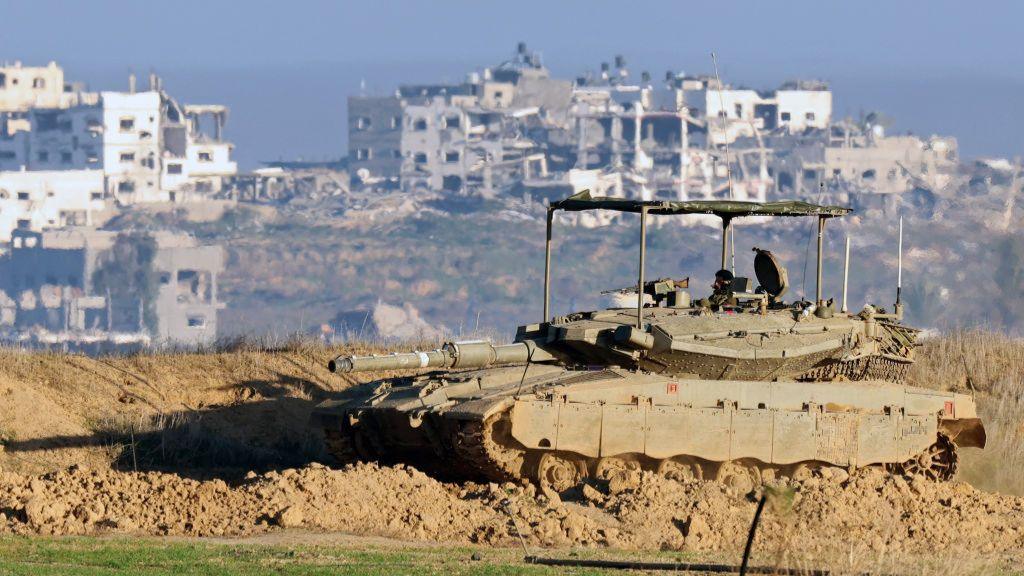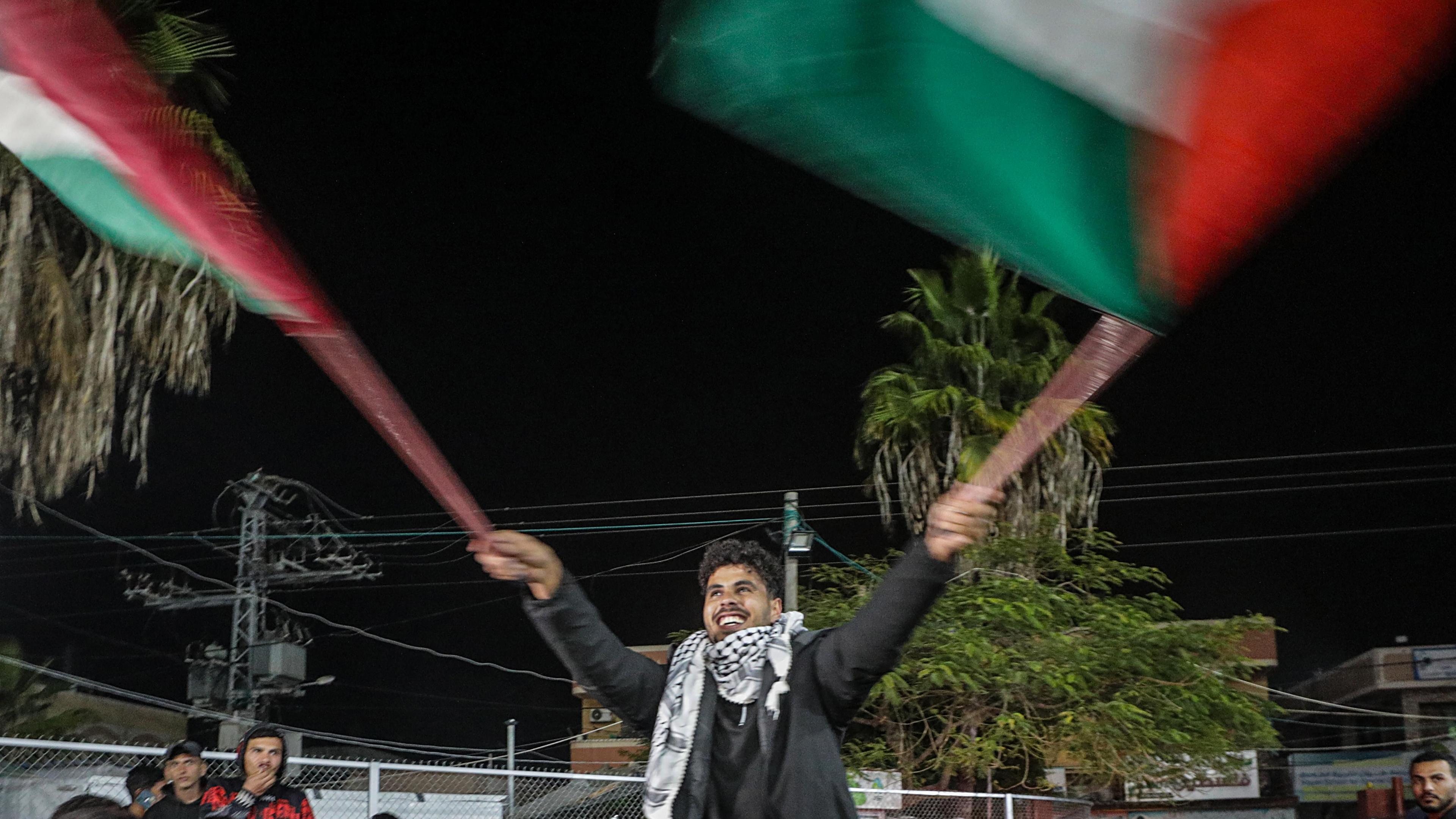'Joy and worry' from hostage families as deal reached
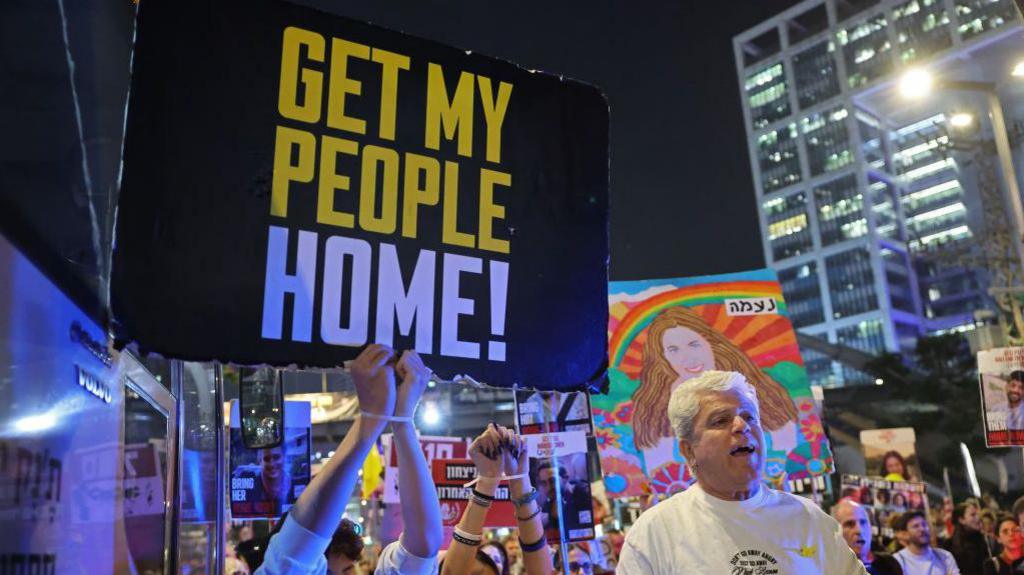
People on the streets of Tel Aviv after the announcement of the ceasefire deal
- Published
"I need to invent a new word to describe it - when joy and worry meet," says Efrat Machikawa.
Her uncle, Gadi Moses, was taken hostage by Hamas fighters from his home in southern Israel on 7 October 2023.
But there is now very real hope for his release, after Israel and Hamas agreed a Gaza ceasefire and hostage release deal.
Despite the deal, which should see all the hostages held by Hamas released in stages, families remain cautious.
"Controlled optimism" are the words Ms Machikawa used to explain how she was feeling after hearing the news.
She described the negotiations as a "rollercoaster".
"We hardly breathe," she said, adding she had no idea when her uncle would be released.
"I believe Gadi will be fine. It will take time but he will be hugged so warmly and slowly. Together we shall overcome."
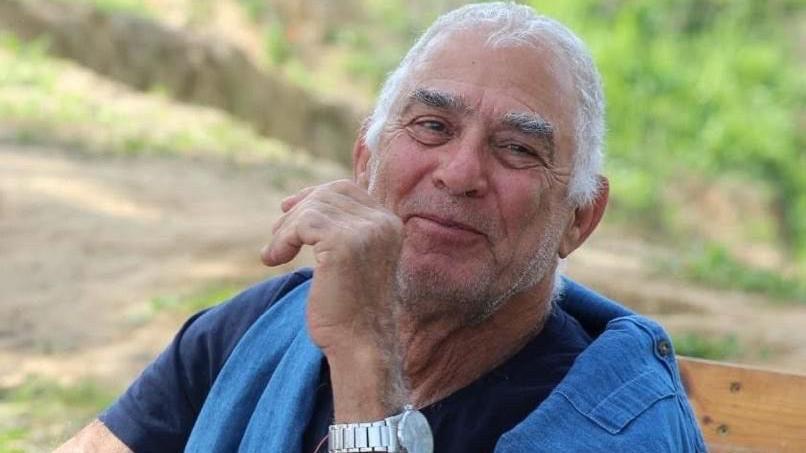
Gadi Moses was taken hostage by Hamas fighters from his home in southern Israel on 7 October 2023
In Tel Aviv, a square that has often been packed with protesters demanding the release of the hostages was empty soon after the ceasefire and hostage release deal was announced.
The agreement is expected to be approved by the Israeli cabinet, after which the ceasefire is expected to happen in three stages.
The first phase would last six weeks and see 33 hostages - including women, children and elderly people - exchanged for Palestinian prisoners in Israeli jails.
Negotiations for the second phase - which should see the remaining hostages released, a full Israeli troop withdrawal from Gaza and a return to "sustainable calm" - would start on the 16th day.
The third and final stage would involve the reconstruction of Gaza and the return of any remaining hostages' bodies.
British hostage families hopeful for reunions
- Published16 January
"We actually don't know anything. It's scary," said Yosi Schnaider, cousin of hostage Shiri Bibas, who was abducted with her two children and husband.
"We don't know if they're on the list, if they're going to come back in the first phase. If they are alive, if not," he added.
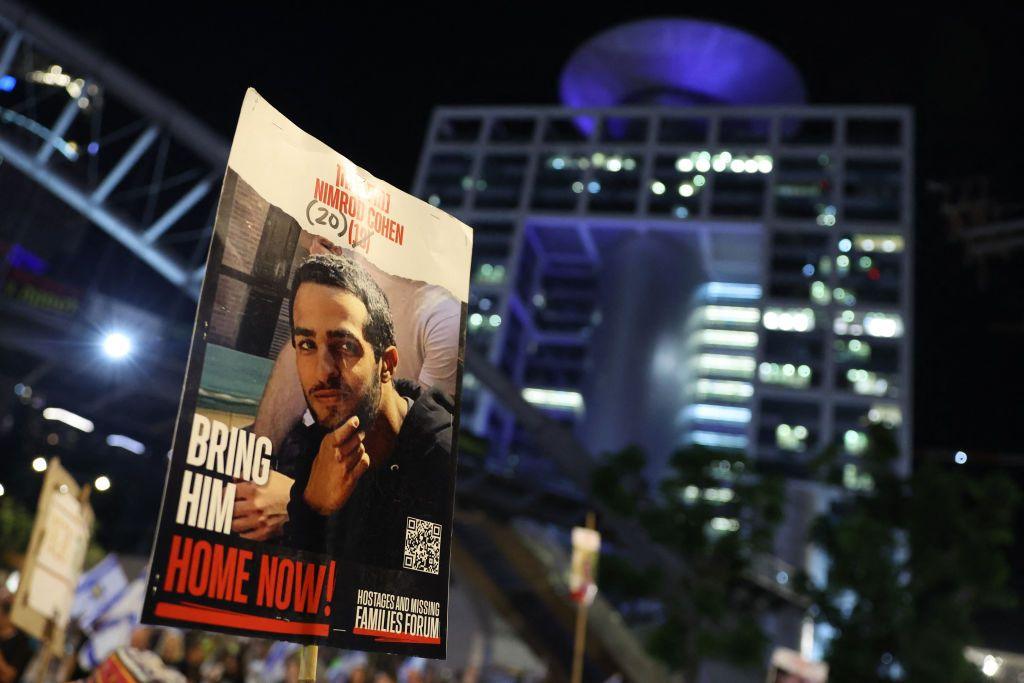
Nimrod Cohen was just 19 years old when he was abducted by Hamas
Yehuda Cohen, father of Nimrod Cohen, an Israeli soldier who was abducted by Hamas, said: "I don't have time for emotion."
"I can be the father of Nimrod once Nimrod is back here," he said.
"I haven't talked to him for 15 months, seen him, heard him...I'm fighting to get back to be Nimrod's father."
According to BBC Verify, 94 of the 251 hostages taken on 7 October 2023 are still held in Gaza - 60 are assumed to be living and 34 dead.
Some 109 hostages have already been released through negotiations, either on humanitarian grounds or during a temporary ceasefire in November 2023.
Eight hostages have been rescued by the Israel Defense Forces (IDF).
The remains of 40 hostages have been recovered from Gaza by the IDF. This includes three hostages accidentally killed by the IDF on 15 December 2023.
Israel launched a campaign to destroy Hamas - which is proscribed as a terrorist organisation by Israel, the US and others - in response to an unprecedented cross-border attack on 7 October 2023, in which about 1,200 people were killed and 251 others were taken hostage.
More than 46,700 people have been killed in Gaza since then, according to the territory's Hamas-run health ministry.
Most of the 2.3 million population has also been displaced, there is widespread destruction, and there are severe shortages of food, fuel, medicine and shelter due to a struggle to get aid to those in need.
Additional reporting by George Wright
- Published18 March
